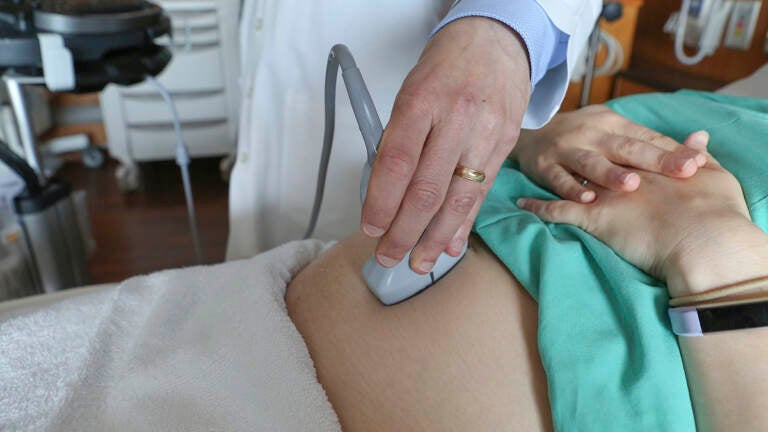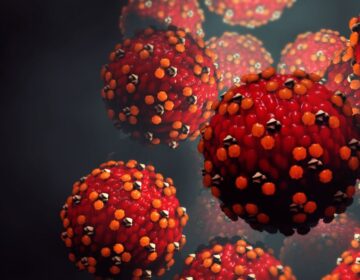Many women don’t know at what age fertility declines: Factors at play when trying to get pregnant
As studies continue in understanding the window of fertility in women, science sadly shows that the numbers are a "cruel irony"

In this Aug. 7, 2018 photo, a doctor performs an ultrasound scan on a pregnant woman at a hospital in Chicago. The arrival of a new baby is all-consuming. You barely know what day it is, and mustering the energy and attention span for managing your financial household can be a tall order. Do your future, sleep-deprived self a favor and start preparing your finances early into your pregnancy. (AP Photo/Teresa Crawford, File)
This story originally appeared on 6abc
When does a woman’s fertility begin to decline?
The answer, experts say, is a cruel irony:
“When women are biologically most ready and able to have a baby, most women are not ready, emotionally, psychologically, socially,” said Stacey Colino, a National Geographic contributing author who explored the factors that play into a woman’s odds of conceiving.
Age delivers the harshest blow to a woman’s fertility because she is born with all the eggs she will ever have.
“It’s so unfair,” Colino said. “For men, throughout their lives, the sperm production cycle is essentially reset every 72 days.”
Fertility peaks between the late teens and 20s, when women have an 85% chance of conceiving within a year. By age 30, that percentage drops to 75. At 40, it’s sunk to 44%.
“Aging eggs are not your friend,” she said. “As you get older, your eggs are getting older too, and you’re losing more of them.”
MORE: Baby Quest Foundation helps aspiring parents struggling to have baby
But a woman’s date of birth isn’t the only determinant: factors may be genetic, hormonal, environmental or lifestyle.
“Smoking is really toxic to eggs. Heavy drinking can be. Certain drug use. Obesity is a problem when it comes to egg health,” Colino said.
And many don’t even know this. A recent survey found one in five women between the ages of 18 and 40 in the United States were unaware of the effects of age on their fertility.
“A lot of the experts that I interviewed for the article also said that women that they have worked with and treated were blindsided and had no idea that their fertility was at such risk,” Colino said.
She hopes greater efforts are made to educate women on fertility — years before they try to get pregnant.
“We could actually make better-informed decisions, maybe, or take steps to preserve our fertility,” she added.
Colino reported that even pesticides and chemicals in plastics can impact egg quality. Learn more at NatGeo.com/health.

Get daily updates from WHYY News!
WHYY is your source for fact-based, in-depth journalism and information. As a nonprofit organization, we rely on financial support from readers like you. Please give today.



